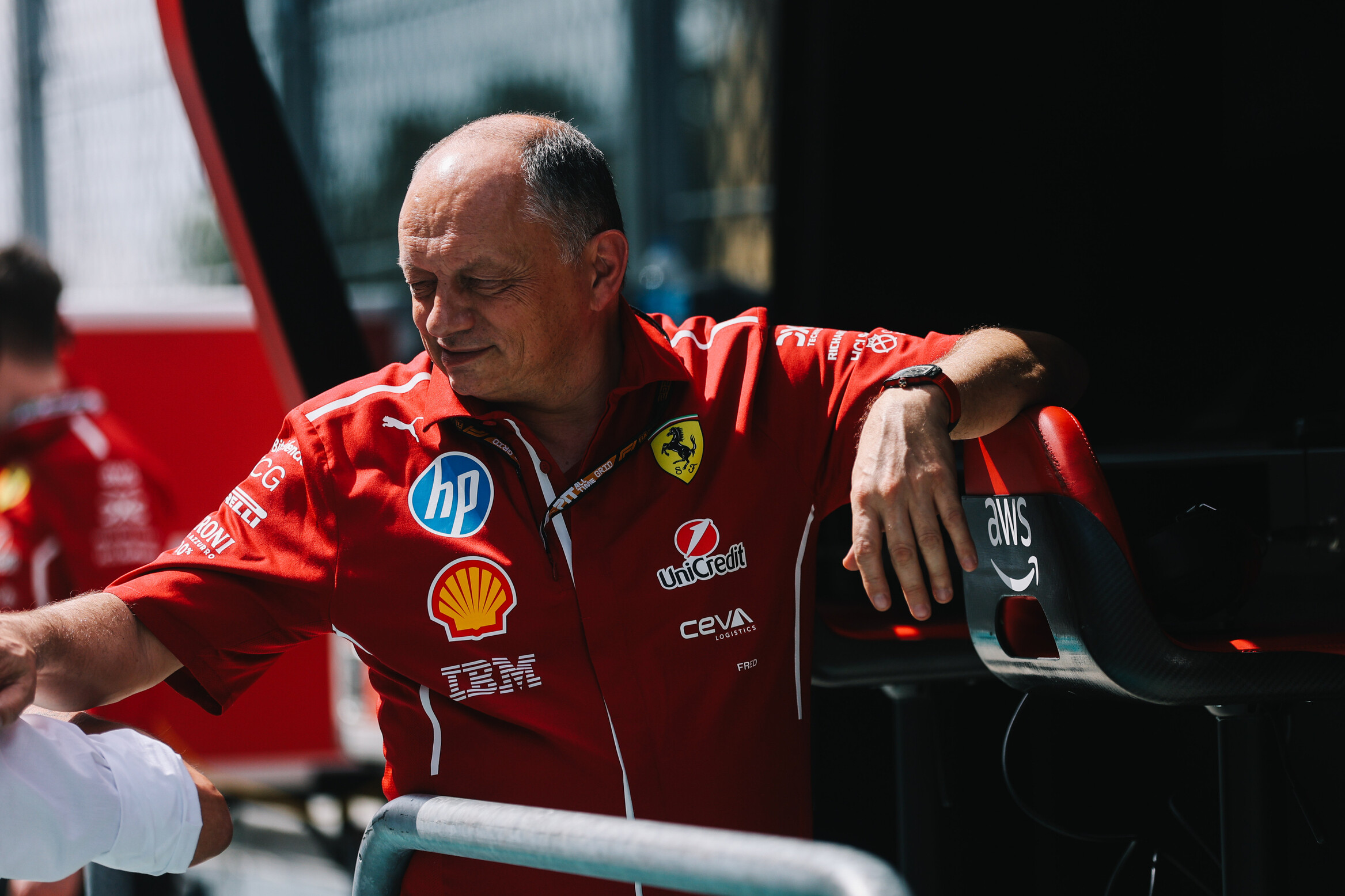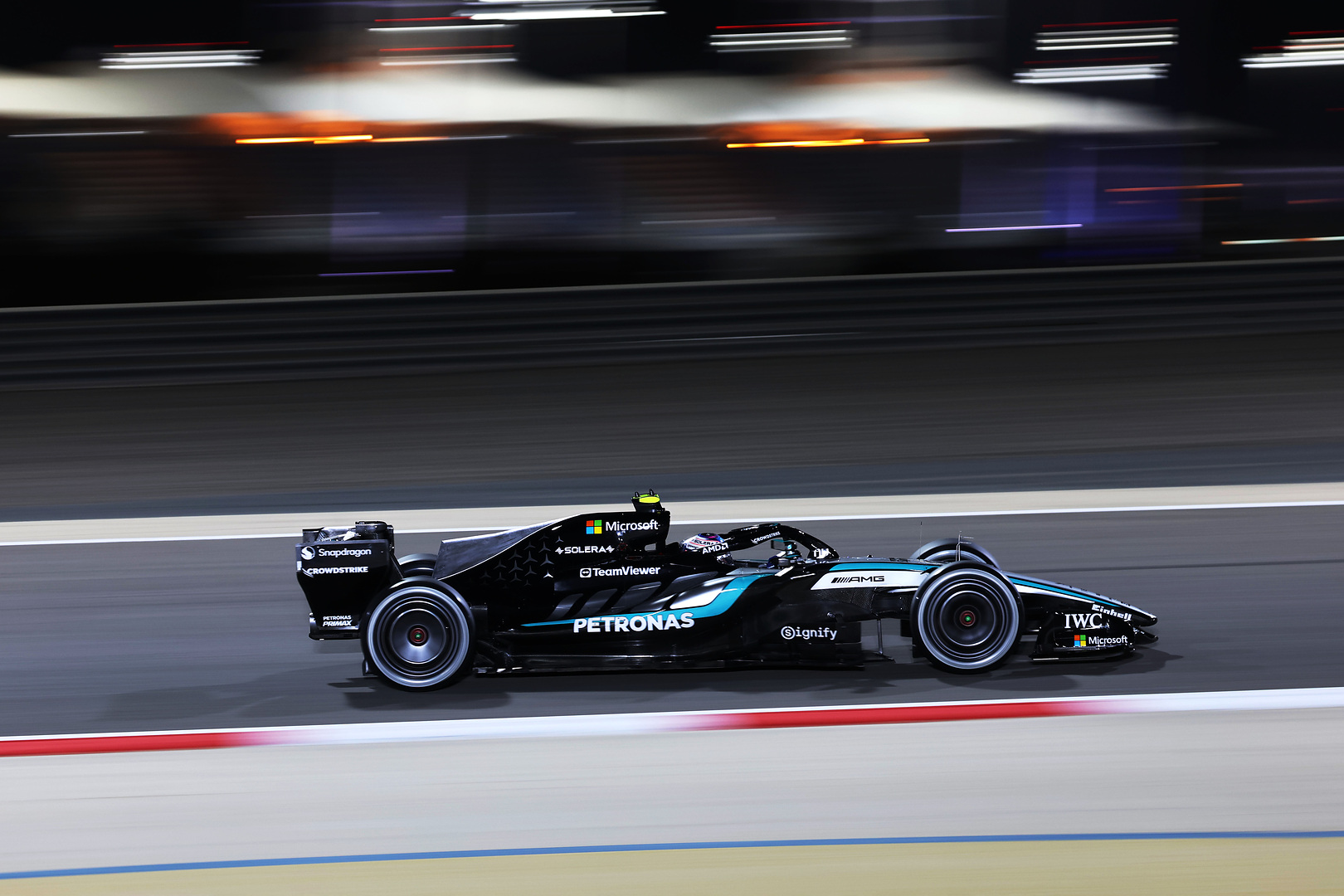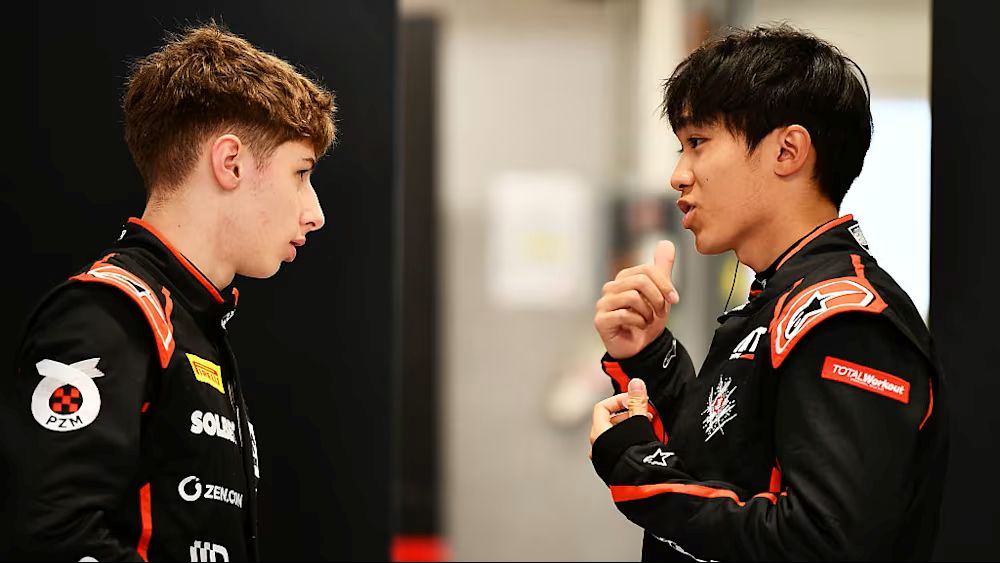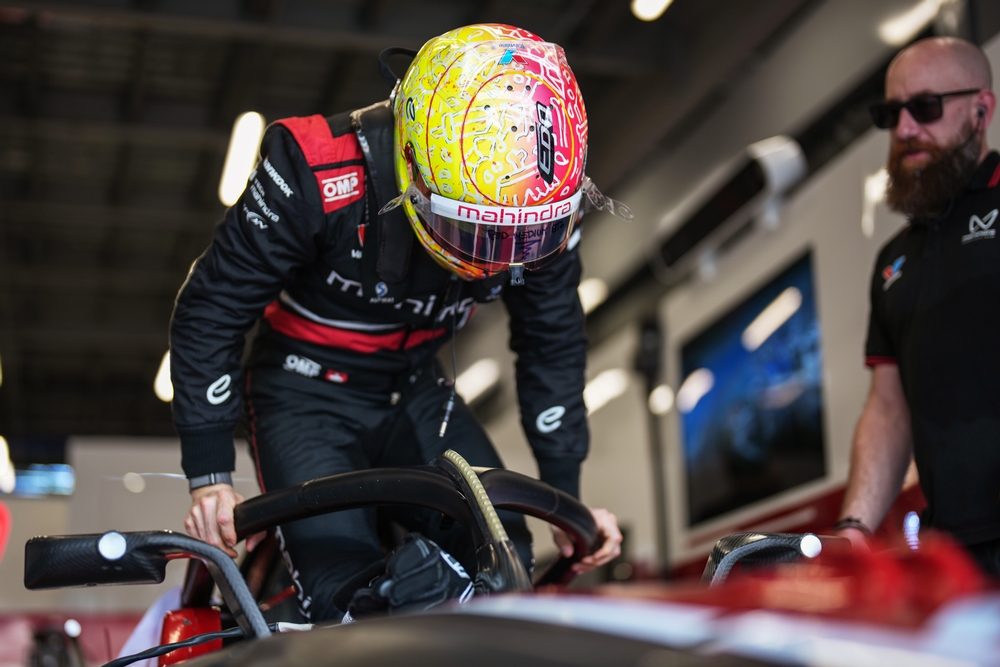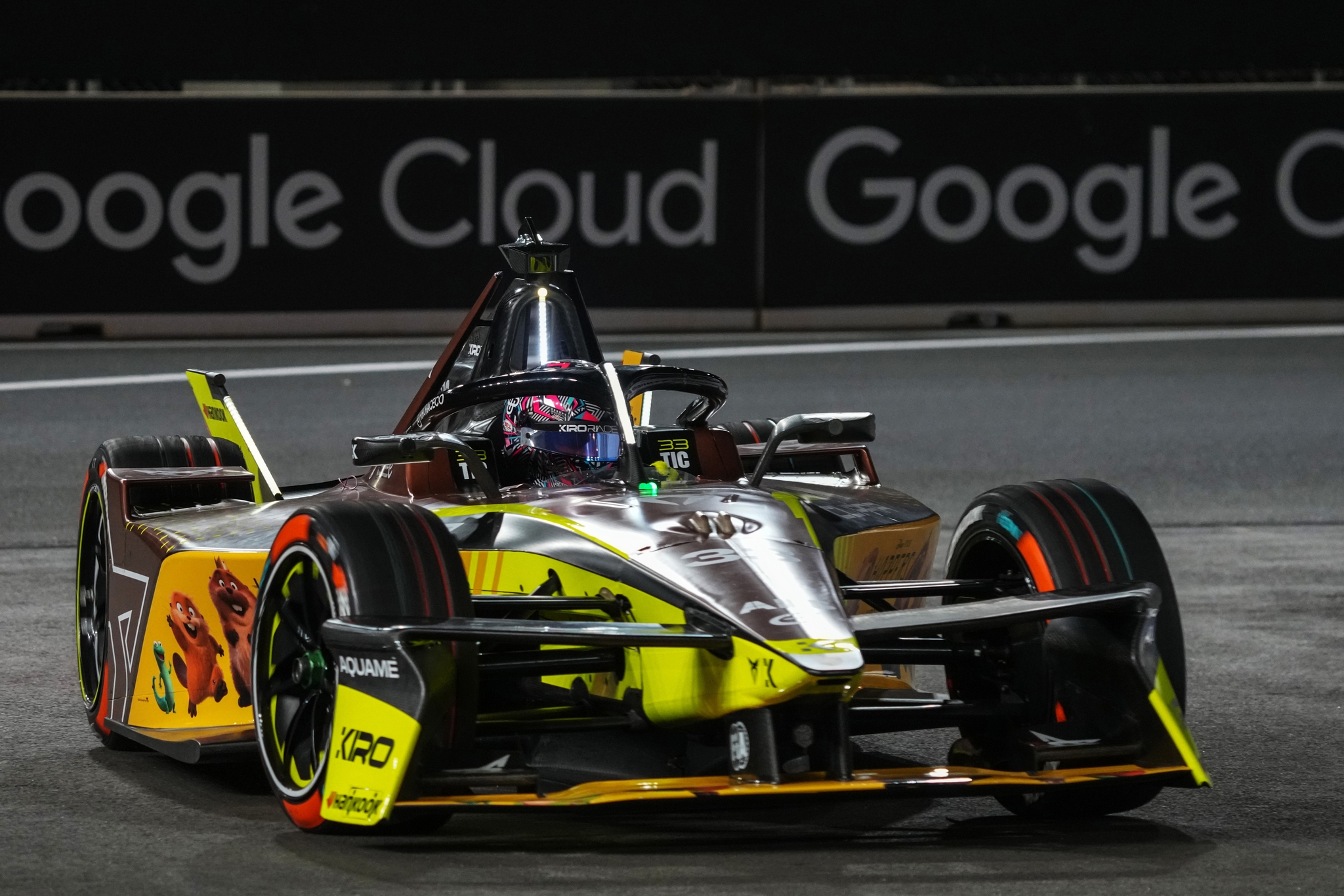Ferrari team principal Fred Vasseur defended the use of team orders during the F1 Miami GP, asserting that the pitwall handled the situation well.
The team order drama at Ferrari—and the tense radio exchanges that accompanied it—is one of the big talking points that came out of the recent Miami GP.
Team orders take center stage in Ferrari’s disappointing Miami outing
After a lacklustre qualifying session, where Charles Leclerc and Lewis Hamilton took P8 and P12 respectively, both drivers were eager to make progress on Sunday.
In the second stint, Hamilton found himself running in eighth, directly behind his teammate. The pair were on different strategies, Leclerc running on the hard tyre while Hamilton was on the medium compound.
At one point, Hamilton indicated to the pitwall that he felt he had a pace advantage, urging the team to give the go ahead to swap positions in a bid to catch sixth-placed Kimi Antonelli.
While Ferrari relayed the message to Leclerc in front, the decision-making process proved too lengthy for Hamilton’s liking. He quipped via team radio: “Have a tea break while you’re at it!”
With Hamilton failing to get close enough to pass Antonelli, Ferrari eventually opted to switch the drivers back to their original positions. This time the team’s decision came as a response to Leclerc’s comment about feeling the effects of dirty air and overheating running behind his teammate, as his hard tyre had come alive in the closing stages.
Meanwhile, Hamilton was facing pressure from Carlos Sainz’s Williams, who was rapidly closing in. Informed that Sainz was just 1.4 seconds behind, the Briton sarcastically remarked, “Want me to let him past as well?”. Sainz—who, in an interesting parallel, was dealing with his own frustration regarding team orders at Williams—actually came to blows with Hamilton on the final lap. Hamilton remained ahead, with the Ferrari duo ultimately finishing P7 and P8, capping off an underwhelming weekend for the Maranello-based squad.
Vasseur gives his assessment of the situation
Despite the drama that played out over team radio, Vasseur defended the pitwall’s handling of the situation. He explained that the team needed to be certain Hamilton actually had a pace advantage before instructing Leclerc to move aside.
“It didn’t take so long [to make the decision]. It was one lap and half, or something like this,” Vasseur told the media after the F1 Miami GP.
“When we have two cars, not with the same strategy, the first thing to understand if it’s faster when you are behind due to the DRS or not. It took us one lap, it means that it’s one minute 30 to understand, and then we asked them to swap.
“But honestly, perhaps you can argue at the end that we would have been better to do it directly, but we didn’t know if it was the DRS effect or not. And I think we take the tough decision because it’s never easy to ask Charles or Lewis to swap. But we did it, and they did it on track. I didn’t see a lot of teams doing it.”
Ferrari’s approach to team orders
Vasseur clarified that Ferrari doesn’t discuss such scenarios on a race-by-race basis but rather follows a consistent internal policy.
“We have a general policy and we follow the policy,” he stated.
“The question is not to swap and to swap back if you don’t get the guy who is in front of you. The issue at this stage of the race is to understand if the car behind is faster than the car who is in front. Or if it’s just the DRS effect.”
Asked to explain the rationale behind reverting the positions, Vasseur commented: “Because it’s the policy of the team that if you ask them to swap.
“If you don’t ask them to swap, they don’t overtake. If you ask them to swap, it’s because we think that the second car is faster than the first one at this stage of the race.
“He tried to catch up the guy who was in front. And if we don’t do it, we swap back to respect the initial position.
“And at this stage of the race, it was clear that we won’t be able to fight [Andrea Kimi] Antonelli with Lewis. So we asked them to swap back.”
Vasseur pins team radio drama on FOM
The Ferrari team boss criticised—not for the first time this season—the ‘cherry-picking’ of radio messages that go to air, as well as the timing delay in the broadcast. Vasseur believes the delayed timing contributed to the Ferrari team radio drama that transpired at the F1 Miami GP.
“The radio transmissions… first, you have to understand that it’s FOM who is managing the delay,” Vasseur said. “It means that sometimes we’re asking [the drivers] something and you have it live, half a lap later, or one half later but it was still under control.
“And then we have tons of information that we are discussing with them about the car, the set-up of the car. So it’s not always easy to ask them to do it before Turn 11 or Turn 18. Honestly, I think that we did what we had to do.”
The drivers’ frustration is understandable
Vasseur acknowledged that while the team made the best call it could under the circumstances, the emotional response from the drivers was understandable. He added that he has met with the drivers to clear the air, particularly with Hamilton, who felt hard done by.
“I had a discussion with Lewis and I can perfectly understand the frustration,” Vasseur said. “They are champions, they want to win races. We are asking them to let the team go. It’s not easy. It’s never easy.
“That’s why we took the responsibility to do it. We are racing for Ferrari first and honestly I think as a team we did a good job.
“You can argue that it would have been better to do it half a lap before or half a lap later. But when you are on the pitwall and you have to understand if the car behind is faster than the car in front, if it’s just DRS or not, it’s not an easy call.
“Now, the frustration when you are in the car, I can perfectly understand this. We had a discussion and it was much more relaxed.”

